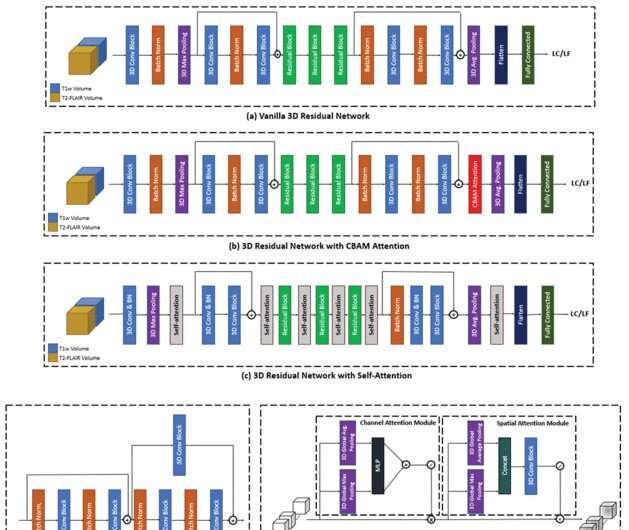AI better than human eye at predicting brain metastasis outcomes, find researchers

A recent study by York University researchers suggests an innovative artificial intelligence (AI) technique they developed is considerably more effective than the human eye when it comes to predicting therapy outcomes in patients with brain metastases. The team hopes the new research and technology could eventually lead to more tailored treatment plans and better health outcomes for cancer patients.
"This is a sophisticated and comprehensive analysis of MRIs to find features and patterns that are not usually captured by the human eye," says York Research Chair Ali Sadeghi-Naini, associate professor of biomedical engineering and computer science in the Lassonde School of Engineering, and lead on the study.
"We hope our technique, which is a novel AI-based predictive method of detecting radiotherapy failure in brain metastasis, will be able to help oncologists and patients make better informed decisions and adjust treatment in a situation where time is of the essence."
Previous studies have shown that using standard practices, such as MRI imaging—assessing the size, location—and number of brain metastases— as well as the primary cancer type and overall condition of the patient, oncologists are able to predict treatment failure (defined as continued growth of the tumor) about 65% of the time. The researchers created and tested several AI models and their best one had an 83% accuracy.
Brain metastases are a type of cancerous tumor that develops when primary cancers in the lungs, breasts, colon or other parts of the body are spread to the brain via the bloodstream or lymphatic system. While there are various treatment options, stereotactic radiotherapy is one of the more common, with treatment consisting of concentrated doses of radiation targeted at the area with the tumor.
"Not all of the tumors respond to radiation—up to 30% of these patients have continued growth of their tumor, even after treatment," Sadeghi-Naini says. "This is often not discovered until months after treatment via follow-up MRI."
This delay is time patients with brain metastases cannot afford, as it is a particularly debilitating condition with most people succumbing to the disease between three months to five years after diagnosis. "It's very important to predict therapy response even before that therapy begins," Sadeghi-Naini continues.
Using a machine-learning technique known as deep learning, the researchers created artificial neural networks trained on a large pool of data, then taught the AI to pay more attention to specific areas.
"When you look at an MRI, you see areas within or surrounding the tumor where the intensity and pattern is different, so you attend to those parts with your vision system more," explains Sadeghi-Naini. "But an AI algorithm is blind to this. The attention mechanism we incorporated into the algorithm helps these AI tools to learn which part of these images are more important and put more weight on that for analysis and prediction."
The study, now available online, has been published in the IEEE Journal of Translational Engineering in Health and Medicine.
Sadeghi-Naini says that while more research needs to be done, the findings point to AI being a potentially significant tool in precision management of brain metastasis and even other types of cancer down the line.
The next step to adopting this as a clinical practice would be looking at a larger cohort with a multi-institutional data set, from there a clinical trial could be developed. "If standard treatments can be tailored for patients based on their response to treatments—that can be predicted before treatment even starts—there's a good chance that the overall survival of the patients can be improved," he concludes.
More information: Seyed Ali Jalalifar et al, A Self-Attention-Guided 3D Deep Residual Network With Big Transfer to Predict Local Failure in Brain Metastasis After Radiotherapy Using Multi-Channel MRI, IEEE Journal of Translational Engineering in Health and Medicine (2022). DOI: 10.1109/JTEHM.2022.3219625




















